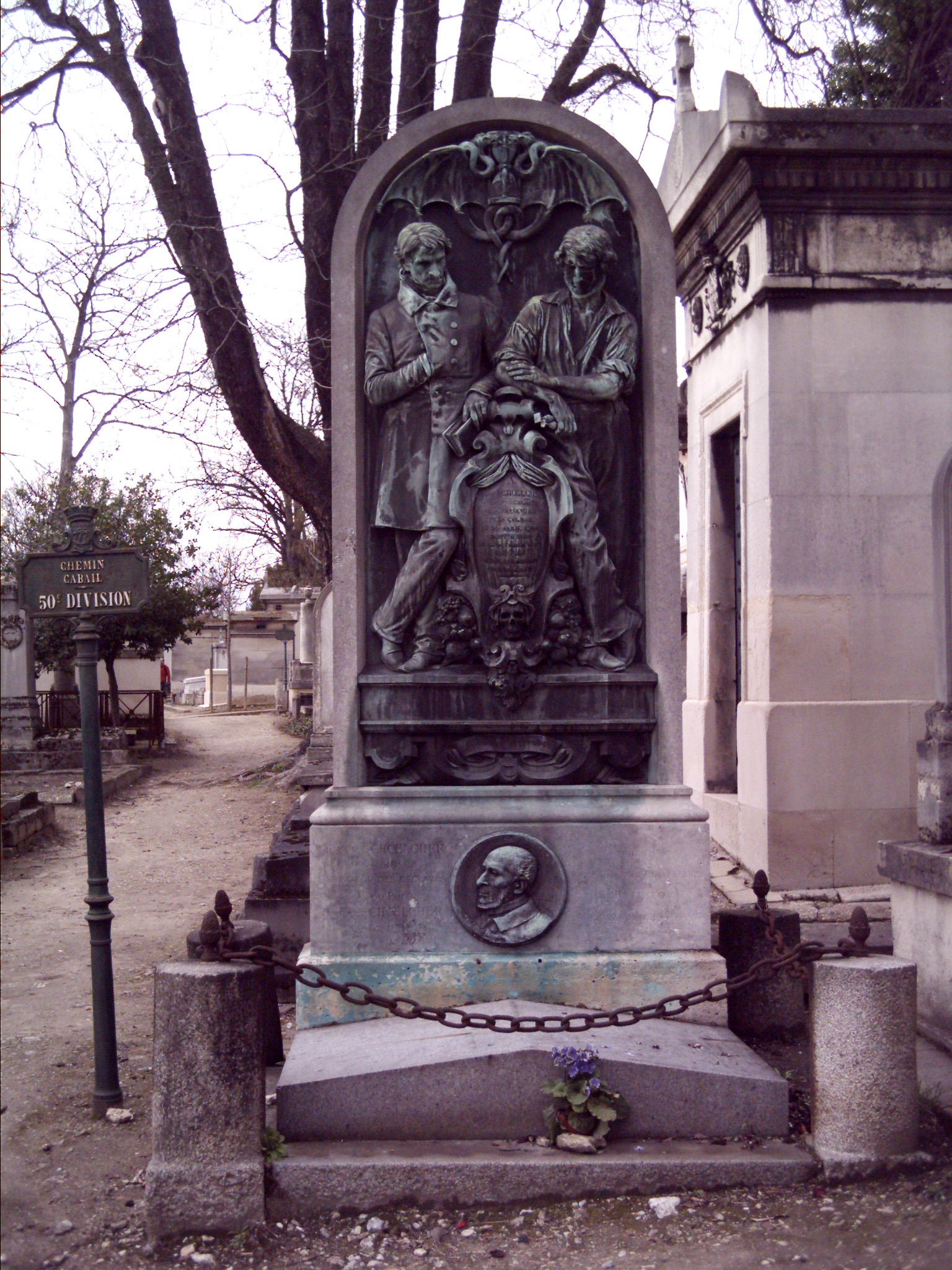July 22, 1804, Paris, France — December 26, 1893, Houilles
Schœlcher was the the son of a porcelain manufacturer (Marc Schœlcher, also listed on this headstone) whose political and social awakening took place while on a trip for the family business which took him throughout North America. It was on this trip that he first came face to face with slavery, and he spent the next several years of his life fighting for abolition.
For his time, he seems to have been a very well-informed and well-intentioned man, but the scars and ongoing wounds of colonialism can’t be healed by good intentions and in recent months, statues of Schœlcher in Martinique have been vandalized amid pushback against the narrative surrounding his role in the history of the West Indies.
It is no wonder that this is happening at this moment in time, when so many nations are grappling with the complex legacies of those who have been memorialized with statues and naming rights and simplistic stories of heroism. In Martinique, a lengthy and ongoing French judicial inquiry into unsafe practices on banana plantations in the West Indies (the use highly toxic insecticides in the late 20th Century which public health authorities say could have contaminated around 90% of the island’s adult population) has led to concerns that the Inquiry may punt on the entire question. The tensions surrounding the matter have resulted in large demonstrations in recent months.
As political scientist Françoise Verges is quoted as saying in The Art Newspaper, in spite of Schœlcher’s good intentions, he “represents a past that offered absolutely no repair for the crimes… and that facilitated and justified post-slavery colonisation.” For example, the abolition degree he supported and was instrumental in getting enacted compensated slave owners but not the enslaved persons themselves for their stolen lives and labor. Verges goes on to say, the vandalism is a reaction to “false promises of equality in a world structured by racism, inequalities and injustices.”
It is worth evaluating the stories we tell ourselves about even the apparently heroic people in history who are placed on literal pedestals, and that seems to be what’s going on with Schœlcher.
Schœlcher’s remains are no longer interred in Père Lachaise though the headstone was left in place. As he wished to be buried with his father, when his remains were moved to the Pantheon in 1949 (a great honor), his father’s were moved as well.
RIP M. Schœlcher
Please visit my Instagram for any questions or comments on this post!
References
- “‘Proud to be colonised?’: statue of French politician torn down in Martinique” (The Art Newspaper, 10 March 2021)
- FindAGrave.com for Cimetière du Père Lachaise memorial
- FindAGrave.com for The Pantheon memorial
- Encyclopedia of Revolutions: Victor Schœlcher
